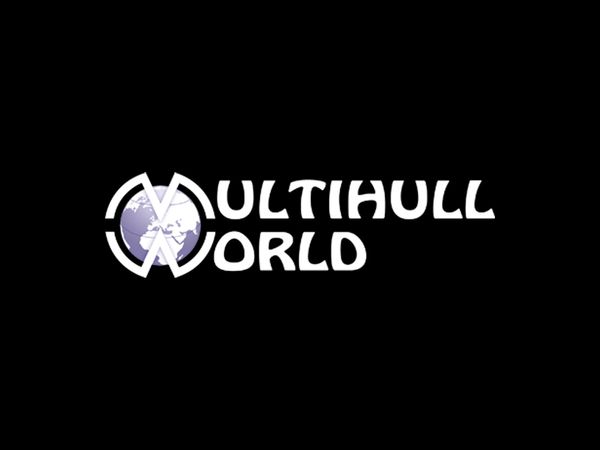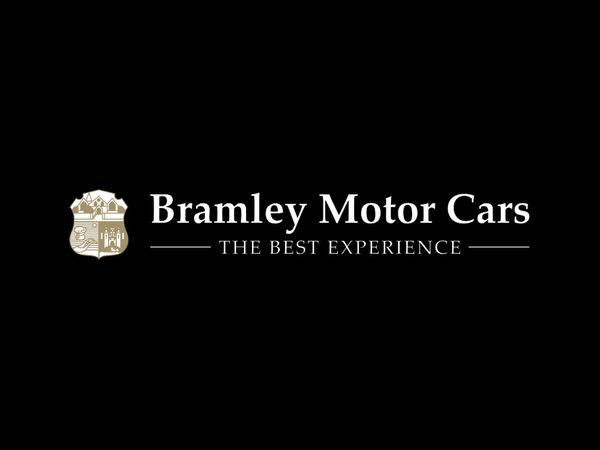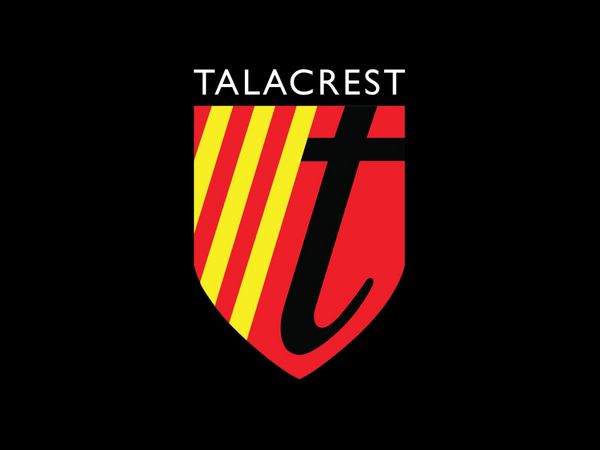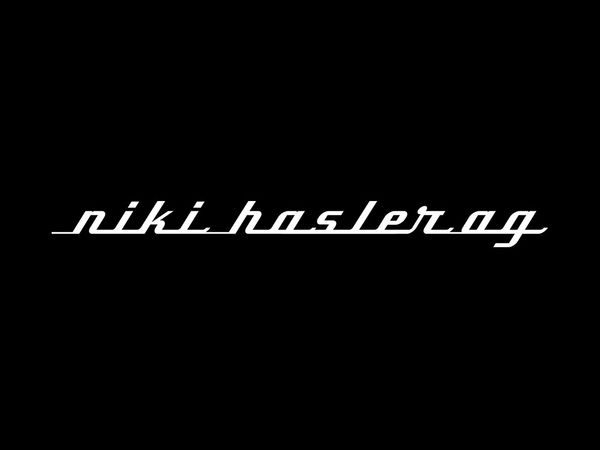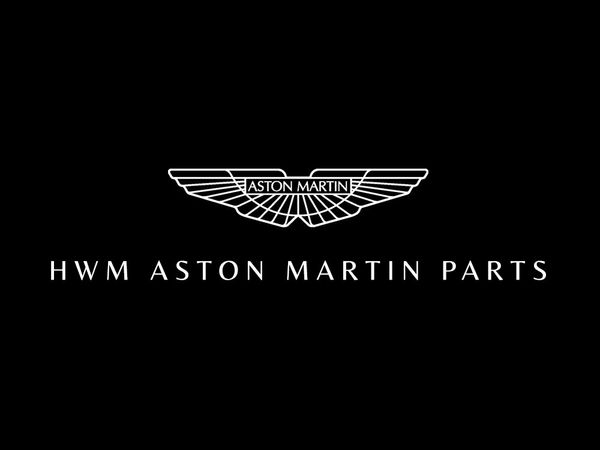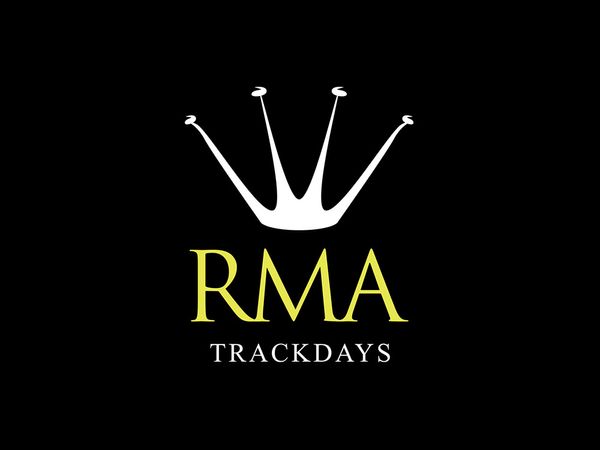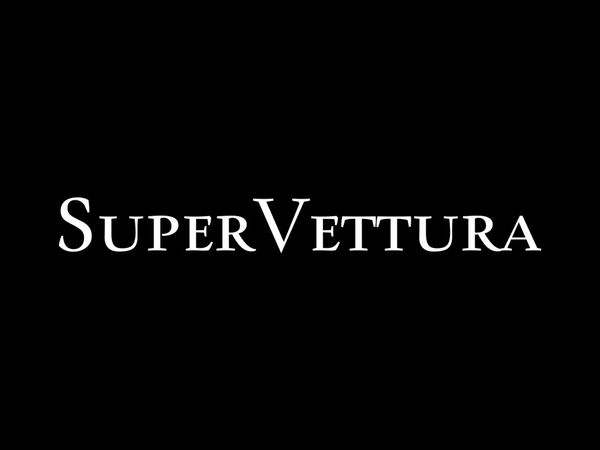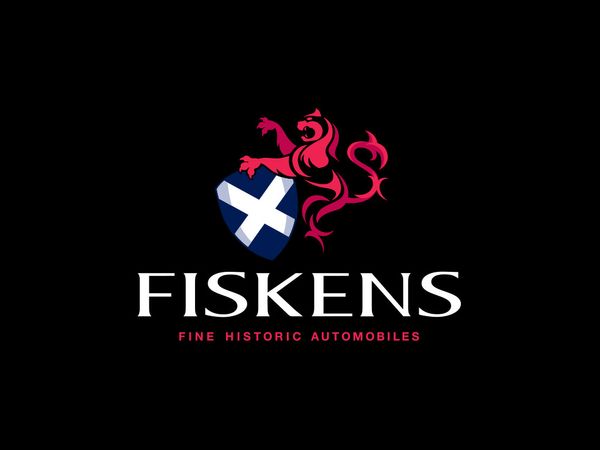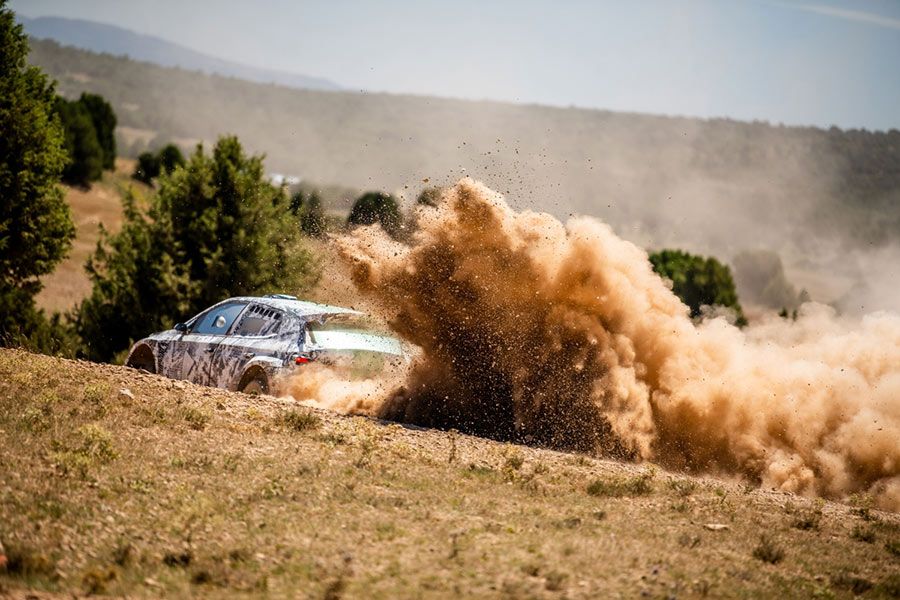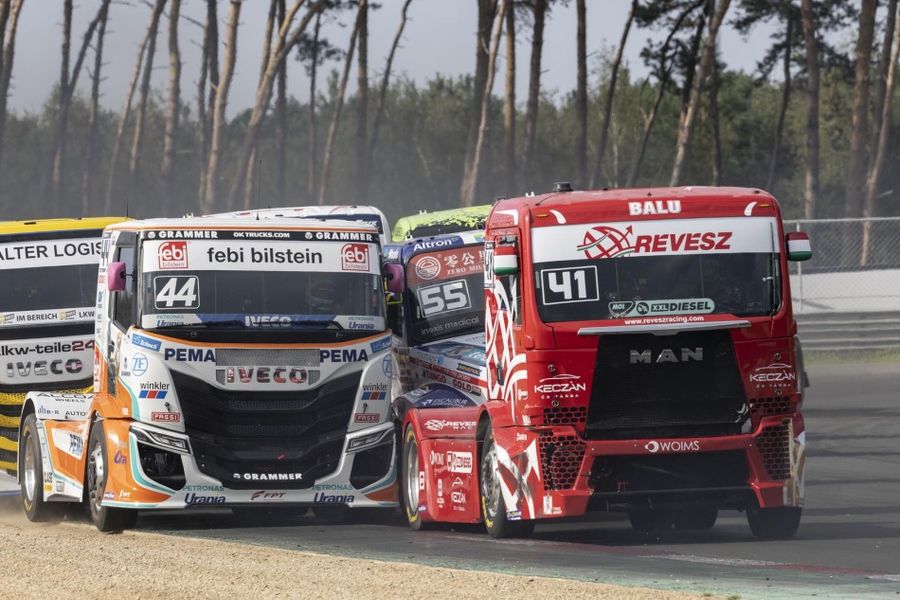KERRY THARP: Let's hear from our 2013 Brickyard 400 winner, that is Ryan Newman. He claims his first Brickyard 400. It's his 17th career NASCAR Sprint Cup Series win. It gets him into the 2014 NASCAR Sprint All-Star Race with this victory here today. It also now positions him as a contender for a position in the 2013 Chase for the NASCAR Sprint Cup. With his win, he's 16th in points, and has that all-important win. Congratulations, Ryan. You're the third Brickyard winner to win from the pole, to join Kevin Harvick and Jimmie Johnson. You're joined by crew chief Matt Borland. What does it feel like to win the Brickyard 400? RYAN NEWMAN: I'm not sure at this point. I know it's an amazing feeling. I was more emotional yesterday after winning the pole than I was two laps after doing my donuts and everything else today. I'm not sure why. I took an emotional hit yesterday. Just an awesome day. Matt and all these guys did a great job. Probably the best racecar I have ever driven in my entire life. I watched Jimmie, kept quiet. I wanted to see who I was placing. Played the old Pearson role. I knew I had a good car. I didn't want to have a good car and not win the race. Matt's call gave me the track position I needed, taking the two tires. I was just counting down the laps from that point on. I knew a lot of guys needed to pit. I didn't know how far back Jimmie was. He said four seconds at that point. I knew I had to manage my racecar and my tires. I knew it was so difficult to pass. His car was looking looser and looser as I ran behind him. Just an exciting day. Thank Quicken Loans, Chevrolet, Sprint, all the sponsors we have. Tony Stewart, Stewart-Haas Racing, they gave us all the tools we needed all weekend and all year. KERRY THARP: Matt Borland, talk about winning the race here today. MATT BORLAND: It's a great feeling, for sure. I think I'm the happiest for Ryan and his family, also for Lawrence, our car chief. Indianapolis is such a big deal. To win a big race in your hometown is huge. It's great. It's been a long time since we've been in Victory Lane, so it's a good feeling for myself just from the standpoint of winning a race again. But just a tremendous job by all the guys in the shop getting that car ready. Perfect execution by all the guys this weekend getting the car ready. Great pit stop there at the end. KERRY THARP: Questions now for Ryan or Matt. Q. Ryan, I was going to ask you about your lack of emotion. You addressed that. RYAN NEWMAN: (Indiscernible) don't have emotions, you know that. Q. The Daytona 500 was also a big win. As an Indiana guy, is this one bigger? Are they the same? RYAN NEWMAN: I mean, I don't show a lot of emotion. I think everybody knows me as that. I had the same emotion, the same thankfulness I did when I won the Daytona 500 because I feel everybody that has been a part of my racing career, from people that bought my racing uniform, bought me a right rear tire, given us a credit card to get to some racetrack at some point in my career, those are the people that helped me get to where I am today. Matt Borland, Don Miller who put Matt and I together for the first time back in 2000, people that have been instrumental in my career, it could be the littlest thing I'm thankful for. That's what I'm thinking about. To me, it's awesome to be here at Indy. It's awesome because it's my home state. I grew up racing around here, Winchester, Salem, IRP, little tracks like Anderson. That makes it special. Most people don't know, I lived out in a shop in Jeff Gordon's old shop before I ever made it in NASCAR. I slept with the racecars. That was my summer job, working racecars, sleeping in the shop with them. I've raced go-karts at pretty much every go-kart track around here, been kicked out of half of them. Those are the things that make it special. I think about those things more than I carry the emotion on my cheeks. Q. Ryan, can you talk about the last two weeks, the range of emotions, finding out you're losing your ride. RYAN NEWMAN: I did (laughter)? Q. Breaking news. And then getting the win here today. I guess the range of emotions, and does this help you for 2014? RYAN NEWMAN: I think obviously it helps. The emotions have been an absolute rollercoaster. Loudon was a disaster. We got crashed out, everything that was said. We got through all that stuff. Talked about it. That weekend off I think was good timing, to be able to hit control, alt, delete. Matt did an amazing job to come here with a fast racecar, give me what I needed. We all did it together. Not the guys just here, but the guys at the shop, the pit crew. You all know it's a huge team sport. It makes it better looking for something for 2014, also for Matt. There's a lot of questions to be answered. We'll get through all that. But today we're celebrating a victory. Q. Ryan, despite everything you've been through, not just this year, but last year, you were kind of in a similar predicament, having Matt Borland, one of your dearest friends in the world, to guide you through this, has it made the bad times easier? RYAN NEWMAN: No, it's hard to be mad when you're friends with somebody. Q. Having him there, reunited as your crew chief. RYAN NEWMAN: We are here for a reason. It's because of our relationship, our mentality, our analytical way of looking at things, our engineering background. All those things help. No different than Tony Stewart and I talked about at Loudon. It's difficult at times. He's the one that's responsible for my racecar. We're friends. There's times when he wants to slap me around, there's times I want to slap him around. But we can't do that. It doesn't make the racecar go faster. We dealt with different emotions in Loudon. We zeroed. We came here, proved that we can come back and fight back. We're not out of this Chase, we're not out of this chance for a championship. This wild card helps us, but it doesn't guarantee anything. We're still outside the points margin. We just got to keep our nose to the grindstone. There's still a ton of racing left. Another three wins before the Chase starts would be great (laughter). Q. I spoke with your father out there. He said he came to his first Indy 500 when he was eight years old, used to bring you a couple of times. How much of a feeling of pride do you have being only the second Indiana-born driver, your team owner being the other, to have won this race? RYAN NEWMAN: That's cool. I think it's coincidence that I'm born in Indiana. I would have an appreciation for this racetrack if I was born in Hawaii. I mean, to me I think it helps being born here, it helps growing up close to it, growing up around it and in it, no doubt. But I just am a big fan of cars. I'm a big fan of tires. I'm a big fan of making 'em go fast. That's happened here since 1909. I appreciate that. My dad, I was counting down from 10 to go, so I started at 12. I was trying to trick myself into getting there quicker (laughter). I remember my dad always telling me, he was here when Parnelli broke with four to go. With three to go, We made the past where Parnelli made it. Those are the things that are going through my mind at the same time, trying not to hit the splitter on the rumble strips, hitting the right side of the wall. It's challenging here. Q. Ryan, do you feel your team has rallied at all behind you after the news came out that you wouldn't be back? RYAN NEWMAN: No, we're just a bunch of quitters. Yeah, they rallied behind me. Look what happened yesterday and day after Loudon. Q. You were trying all the other weeks, too. RYAN NEWMAN: I told you yesterday, we were making for a special time to make all this stuff happen. Like the perfect storm. I got fired a couple weeks ago, come back here, win the pole, win the race. It's all because of hard effort. It's all because they haven't given up. They want to win just as bad as I do. I did a good job of not hitting the fence, hitting the pit stall box, and they did their job. We always rally behind each other. That's why it's a team sport and it makes it so tough. I'm only a percentage of what gets us to Victory Lane. It's not a free throw. It's not a slow pitch. There's tough stuff going on out there. These guys are behind me and I'm behind them. Q. For Matt, Stewart-Haas Racing has a history. Did these guys having seen in the shop about Ryan, does that help keep people together? MATT BORLAND: No, not really. Like Ryan said, the guys bust their butts every day. They're working hard. They want to win every race. They want to win the championship. They're digging. We brought our best car here that we've ever built. We're hoping by next week or two weeks from now to have an even better car. Every week we didn't win, we went back to the shop knowing we needed to get better. It wasn't bad luck. We weren't giving Ryan a good enough car. There's not one person on that team that doesn't try to win every week and make that car better every week. You know, it's a good group of people. Just like Ryan said, it's a team sport. No one expects him to quit, no one expects me to quit, no one expects anyone on the team to quit. They all do a fantastic job. Q. Matt, was it just a no-brainer you would get the two tires on that stop? Did you see that Jimmie had actually had a slow stop even with the four tires? What went through your mind? MATT BORLAND: We talked about it a little bit before the race started. We made our decision the second to the last stop, what we were going to do, got ourselves set up for that position. What happened with Jimmie didn't really play into our hands much. We knew we had to do something to win the race, put ourselves in the best tire position. We looked at what the guys did earlier on in the race, taking two tires, taking no tires, and we looked at how many laps we needed to run before we pitted to put ourselves in that good spot. It really didn't have a lot to do with what was going on with the 48 at that time. It had more to do with what happened 140 laps before that. Q. (No microphone.) RYAN NEWMAN: No, no idea (laughter). I was thinking, including the Daytona 500 in 2008, every win I've had since then has been on the two-tire strategy on the last pit stop. Phoenix, Martinsville, and here, Loudon. Track position is so huge. Q. Ryan, you won on two tires at California Speedway once with Matt. Now that you're with Matt, you're talking more geek to us. RYAN NEWMAN: Are you a Mac guy or what (laughter)? Q. Ryan, from Thursday Night Thunder to winning the Brickyard, you came up through the open-wheel ranks. Is that still a viable route to get to the professional upper echelon, before it be IndyCar or stockcar racing? RYAN NEWMAN: It is, but it's not the same as it used to be. The USAC series doesn't have the national exposure that it had through television before. They raced Silver Crown and midgets last night at IRP. I think they had 17 Silver Crown cars and 14 midgets. We used to have 60 Silver Crown cars and 35 or 40 midgets. TV used to be there and it used to be a big deal. Now it's a little line on the bottom of the TV as to who won. My dad told me, You were lucky you did that when you did. We caught it at the tail end when it was as good as it was. You don't see a lot of racing on a short track level any more on TV. You would catch an ASA race every once in a while. It's not there like it used to be. It makes a difference for the younger drivers coming up. It's job security for me. But you have guys like Kyle Larson that are coming up and doing it. There are kids winning Sprint car races that are really, really good. They may never get seen or get that opportunity. Q. 20 years ago I used to get press releases from your mother about your beginning racing career. Talk about how much your family helped you and your decision to go to Purdue where other drivers were already getting into the 500 and stuff at 20. RYAN NEWMAN: My family is huge. That support, I would not be here today without their support, without their drive, dedication, without my dad's guidance. My dad never pushed me, he just guided me. I think that's important for any parent out there, provide the tools they need, but don't grab their hand and make them swing the hammer. I'm very thankful for my mom, dad, sister, all the members of my family, because they've been a part of making it happen, whether it's flipping burgers, polishing, cleaning the car. Bo Kerrihard, who is no longer with us, a good old midget racing fan, he used to do those press releases you're talking about. He did it for free. I'd go over to his place. We'd race trucks on the NASCAR simulator, he'd do up a press release. I said I don't show my emotions on my cheeks, it's because I'm so thankful, I'm thinking about the people that have given me the opportunity. You see Matt sitting next to me, but there's a thousand other people that have given me things to get me where I am today. It's the same thing for Jimmie Johnson, Tony Stewart, Jeff Gordon, but it's between my ears right now. Purdue, for me it was an opportunity. My parents literally pushed me out of the door and said, Go to college. I didn't want to. I will say it in front of everybody, I was tired of school, I wanted to go racing. I was winning races, having fun. They said, No, go get your engineering degree. Fortunately the pattern was there from people like Alan Kulwicki and Mark Donohoe and Matt. He loved racing, but also loved working on cars, making them go faster, tricking them out. No bending the rules. That makes a difference. We've got a common language now because of my engineering degree. He happened to go to GMI. I went to Purdue. They still talk about physics and equations and things like that. Math is a big part of what we do, a big part of what makes the racecar go faster. Q. Ryan, Tony Stewart used to talk about how he used to rush home from school to watch the Indy 500. Do you have any childhood memories or stories like that about Indy? RYAN NEWMAN: I came here once for the Indy 500. I believe it was '86. I was talking to somebody a couple weeks ago. They got rained out till Tuesday. Was that Sullivan or Rahal's win. I sat in the middle of one and two. I watched the 32 yellow car, watching it out in the rain, thinking that was the neatest thing, watching something that was making more smoke than noise. That was one of my first history moments with the speedway here. I never got a chance to come back and actually watch the race. I had something called school the next Tuesday. It was special for me then. I came down here whenever they first tested, '92 or '93, I was actually with my mom. We were going over to pick up tires for my midget racecar. We heard some noise at the speedway. We drove in, walked to the garage. That was the day I talked to Jeff Gordon, asked him if he had the opportunity to go to college and get an engineering degree, would he do it if he had the chance to do it all over again. He said absolutely. I also talked to Kenny Schrader, that gave me partially the goal of doing that. My parents pushed me, but I wanted to make sure it was the right thing to do. Why not go to the horse's mouth and make sure it was the right thing to do. Those are the two memories. Q. You won on a two-tire strategy. It felt reminiscent of 2003. At that time you were the Johnson and Knaus of Sprint Cup. Do you ever reflect back on that? Do you feel you've recaptured the magic you had 10 years ago? RYAN NEWMAN: We've worked on it. It's not easy. There's a lot of things that have changed. That's our goal. Those guys are and have been the benchmark for a long time. They've been beat before by other teams, but we were the last duo to give them a good run for their money on a regular basis. I'm not saying just because we won today we're going to do it again next week. But that's our goal. We're there to beat everybody, but it just so happens that they're usually the team you have to beat to do that. MATT BORLAND: It's hard to recapture that magic. But for me it's probably been 2005, eight years, since I've been to Victory Lane. You question all the things that you're doing. You think you're doing things the way you used to do them, it doesn't work, doesn't work, doesn't work, doesn't work. This weekend it worked. It was all those same things that we've been doing all year and that we did eight, ten years ago. You have to keep believing you're doing the right things for the right reason and eventually it's going to work. Like Ryan said, Chad and Jimmie, I mean, they've dominated this sport for the last 10 years. If you're going to win races and win championships, you have to go toe-to-toe with them. Today was a great day, but we got a lot of work to do in the next six races and a lot of work to do in the next 16. Q. There were a lot of people who probably thought at the beginning of the year that since you had spent so much time working together, perhaps it would be easier to just kind of put the pieces back together and pick up where you left off. Could each of you talk about how your relationship is maybe different than it was before. Was it more difficult trying to work together when you had been apart for so long? RYAN NEWMAN: We worked on building or rekindling our relationship as a driver/crew chief in the off-season. Matt took the responsibility on his shoulders once we decided what we were going to do and put together a group of guys. Some had tremendous experience, some had no experience at all. That's been something that's kind of been tough for me to work through because of where I am in my career. I want the best guys. Matt took the weight on his shoulders to take those guys and make them the best guys. Today they were. It hasn't been like that the entire season. We've gone through some growing pains. Captain Obvious would have raised the flag instantly. That's learning. I know it's been tough for me and him. Those are the people he believes in. Those are the people we believe in. I have kind of sat back and let him do that part. As a crew chief, that's his job. My job is to go out there, give him the feedback, be responsible with what we do so we can have something at the end of the race. All that is a big challenge. It's a big challenge for every team. I think a lot of people didn't see that or know that as to how our team came together for 2013. MATT BORLAND: Along those same lines, we got four races at the end of the season to try to get things rolling again. Things went really well. I think we finished like 11th, 12th, third and fifth. This is easy, right back to where we were. But, you know, starting this season, I realized all the things that I hadn't realized over the past several years of not being a crew chief. Like he said, we had to build a whole team of people, get people in place, figure out where people do their best work, where they don't do their best work, how to make all those people fit together the best we can. That's definitely been a challenge all year. But I know for me, I wish I was more prepared starting the season than what I was to help Ryan with this season. Like he said, there's been a lot of mistakes along the way this year. I know I've learned from each and every one of them. You get better and better each week in realizing the things you're doing right and the things you're doing wrong. When you have a weekend like this, it's great. Everything went perfect. This is the kind of weekend you shoot for every weekend. Reality is that doesn't happen very often. You enjoy it this weekend. You learn what things you did right, what you did wrong. When you sit back and think about it, you really didn't do anything different, things just worked out. Hopefully we can keep this cycle going. But the cycle always changes. You always have those down weeks. You always have those down months. You always have those times where you're not sure if it's going to cycle back up. But it always does and goes back the other way. We're enjoying today and we'll hopefully keep doing this for a while. Q. Matt, with Ryan's engineering degree and his understanding of engineering, throughout your time together, how valuable has that been for you as a crew chief? MATT BORLAND: I think it's huge for half the reasons. You know, like I said, we have a common language. We can talk about problems that are going on with the car. I can tell him what we're thinking about doing. He understands. He can pitch to me some different ideas looking at things differently. Gets me thinking about things in a different manner. RYAN NEWMAN: We have some hellacious arguments, too. MATT BORLAND: That's what I was going to say earlier. You typically get in the biggest fights with the people you like the best. I know I do. You get in huge fights with your wife, with your friends. Like he said, between Daniel, one of our racing engineers, Ryan and myself, we all have very strong opinions, we think we're right in what we're thinking, and that's the reason we're thinking that. We tend to get in arguments because we think we're right. What that ends up doing is getting you to look at things a little bit differently. That's huge. To your point, the other part that makes Ryan as good as he is, has nothing to do with the engineering side, but he can feel everything that's going on with that racecar. As much as you hate it, 99 times out of the 100, he's right about what he's feeling. He's pointing you down a road, if you look there, you're going to find the light at the end of the tunnel. I think between feeling those things and being able to describe those things in a common language really helps. Q. Matt, since he is a friend of years, you guys have a relationship off the track as well as on, is it tough watching what he's had to go through this year, the fact he is losing his job? My husband who is upstairs said to ask you if you intend on staying at Stewart-Haas Racing after your friend leaves. MATT BORLAND: Yeah, it's very tough for a couple reasons. One, obviously Ryan is a great friend. We've had tons of history together. I don't want to see him go. It's a shame. Like I said earlier, I feel like if I was better prepared to start this season, maybe things would have changed, been different. So from that end, it is hard. Every weekend you go home and things don't go right, you beat yourself up about what things you could have done better or more. That part is very frustrating. At this point I'm not sure what next year is going to bring. Right now, 100% of my focus and our whole team's focus is on doing as best we can in these next six races and the next 16. RYAN NEWMAN: Going to open up a fruit stand in Statesville if anybody is interested. MATT BORLAND: Do I get to drive the tractor? RYAN NEWMAN: You get to drive the tractor. You also get to change the oil in the tractor (laughter). Q. Matt, the new Gen-6 car, there's some things that are different that you didn't have before. How much fun have you and the other slide rule guys that are on your team had working within the new boundaries to make the car faster? MATT BORLAND: It's always fun. Any new car is fun because it's a challenge, it's something different. It's why you do testing, why you go to the tunnel, why you do simulation work. Any time they change the rules and go to something different, it's fantastic. As far as if I think this car is better than the old car, that's a different question. But anytime there's rule changes, gets your blood pumping as far as things you can do to make the best piece possible. Q. Ryan, how long did it take you to complete your degree at Purdue? How did you strike a balance in your schedule with traveling to race and trying to complete a degree? RYAN NEWMAN: I graduated high school in '96 from LaSalle in South Bend, went to Purdue the fall of '96, went there for four years straight. After the fourth year, I basically took I think it was two semesters off and graduated the summer of 2001 via two online courses. I had two electives I needed to finish. It wasn't easy for me to finish because I was working at the time with Penske. I got my diploma in 2001 in vehicle structural engineering. Striking a balance with school? It was really tough. It was tough because, like anything in life, you find the people that care, you find the people that really don't care. There were professors that cared about who I was and what I did because they liked racing, and there were people that didn't have a clue what racing was and didn't care. It helped in the later years when I got to some of the 400 level courses, in my vehicle structural engineering group, that those people were more likely the ones because they were in classes of 20 instead of 400 that really cared. They were understanding and helped me to be able to turn my homework in at certain times, get the things done that I needed to. I graduated with a 2.01. I needed a 2.0 to graduate. Fortunately on that diploma, it doesn't have a GPA (laughter). I got that. At the same time I listened really good in school, most kids that got 4.0s had a hard time getting jobs because they were too good. I wanted to be the average guy (laughter). KERRY THARP: Congratulations, guys. Thank you for your time today. FastScripts by ASAP Sports
An interview with:TONY STEWARTKERRY THARP: Tony Stewart has joined us. Tony drove to a fourth-place finish. It's been quite a week for you. I know this has to be a good feeling to have one of your race teams win the Brickyard, an event that you have won several times and you know the importance of it, and for a guy like Ryan Newman, a native Hoosiers, has to be a big deal. TONY STEWART: I don't know how you could ask for a better week on our side. The first half of the week was great. Yesterday, Ryan going out, last car out, getting the pole, then being in the race today, watching the battle him and Jimmie had all day, just was impressive to watch. We were fortunate enough we were pretty much a top-five car all day, just weren't good enough to be up there with Jimmie and Ryan. Man, I think midway through the race there, we were in a scenario where Jimmie was leading, we were second. When Ryan got to third, like two laps, he caught us. At that point I knew it was down to him and Jimmie. Just was fun to watch, nerve-wracking as a co-owner. The other car owner is out kissing the bricks, I'm proud for Gene Haas, everybody with Stewart-Haas Racing, Mobil 1, Quicken Loans, Bass Pro Shops, everybody involved. For Ryan, a huge day. When we were little, this was the place. This is where we wanted to be. We knew what Daytona was, but this was the place for us as Hoosiers here. To see him get one, I'm glad our last trip to the Brickyard together as teammates, you know, we're sitting here watching him kiss the bricks today. KERRY THARP: We'll take questions now for Tony Stewart. Q. You said earlier this week winning as an owner would be as good as winning as a driver. Is it? TONY STEWART: Yes. Q. And where do you go this week? TONY STEWART: I have a test Wednesday, I race Thursday. Where do we go next week? KERRY THARP: Pocono. TONY STEWART: Pocono Friday, a race Friday night. Pocono Saturday, racing Saturday night, then racing Sunday. I think I race every day next week except for Wednesday, and that's a test. So a lot of those days are doubled-up days. We have a busy week. Can't think of a better week to celebrate. Q. Can you talk about how it feels different as an owner? TONY STEWART: It doesn't feel different. I'm ecstatic. Right there is a big reason why, too. Ryan is such a good friend. I didn't think it would feel this good as an owner. Because it's Ryan and a good friend of mine, that's the gratifying part. Seeing Greg, Ryan's mom, Chrissy and the kids out there, just knowing we're a part of it with him, that's something that's pretty special to us. Q. When did you first meet Ryan? Did you meet him out here when he was viewing the track or anything like that? TONY STEWART: We met at a midget race. I don't even remember where it was. He was a lot smaller then, but he was still bigger than me. A midget race somewhere many, many moons ago. Q. Wednesday night, huge success. Great luck today. You're having a great time as an owner. Is there any possibilities of hanging up this silly driving habit? TONY STEWART: Take that mic away. You don't deserve to have that. Climb over this counter and beat your ass. That's the worst question I've heard all week (laughter). KERRY THARP: I think you're racing every night this week. TONY STEWART: I think he missed that part. Q. Anything NASCAR or IMS can do to increase passing in these races? TONY STEWART: Look up 'racing' in the dictionary and tell me what it says in the dictionary, then look up 'passing'. We're racing here. That's all I'm going to say. This is racing. If you want to see passing, we can go out on 465 and pass all you want. If you can tell me that's more exciting than what you see at IMS, the great racecar drivers that have competed here. This is about racing. This is about cars being fast. It doesn't have to be two- and three-wide racing all day long to be good racing. Racing is about figuring out how to take the package you're allowed and make it better than what everybody else has and do a better job with it. I've seen races that were won over a lap, I've seen 20-second leads here. For some reason in the last 10 years, everybody is on this kick that you have to be passing all the time. It's racing, not passing. We're racing. It's taking machines that are pretty even package-wise and let the drivers and teams figure out how to make the difference. I don't understand where this big kick has come from. We need your guys' help as much as anybody to remind people this is racing. When somebody does a good job, does a great job, everybody hates that. I don't understand that. It baffles me as a racecar driver. For the record, it wasn't the worst question (laughter). That was a helluva lot worse. It's going to be hard to top that. Q. We'll keep trying. TONY STEWART: I have no doubt. Q. At New Hampshire when you made the announcement about Ryan's future, that obviously wore on you. Talk about the emotions. Does today's win help him get a ride? TONY STEWART: Absolutely. I'm part of the equation. There's a whole group at Stewart-Haas Racing. It was hard. Like we mentioned at Loudon, it was hard because when you run a business, you got to make decisions that you think are best for the company. The hard thing is you have to take emotion out of the equation. Any good business person will tell you that. That's also the hard part about every business that I'm a part of, I'm emotionally invested in it, as well. Even before Ryan came and drove for us, we were friends. So that made that decision and that made that phone call of telling him that much harder. It's not just winning with a driver that drives for us, it's my friend out there that won the race today, too. That's what makes this more gratifying at the same time. I guess it's extreme to extreme. I mean, it's on the good end of the extreme this week. Q. You've won this race twice. I wonder if you ever had any conversations with Ryan where he shared with you that dream, Man, I want this because... TONY STEWART: We've kind of swapped stories. I mean, I want to know what it was like to win a Daytona 500. The one that I lost, he went motoring by about five miles an hour faster than me with a push. He's wanted the same thing. Now I got questions for him about the differences between the two. I want to know what he feels like. I can't wait until tonight for that conversation. Q. We've talked some about the impact for Ryan. What do you think the impact of this win is for the guys that work on that team? This is a new group that was put together. He said it's taken them a while to gel and figure out all their places. TONY STEWART: If you look in the shop where each of these guys came from, a lot came from different areas. A lot of them are engineers that got put on the road. It's awesome 'cause those guys struggled a lot at the beginning. It's just good for our whole organization. It's not just good for the 39 guys, it's good for everybody. The great thing is seeing everybody from the 10 team excited, from the 14 team excited. When we win, we all win. That's the great thing, is no matter where those guys came from in the organization, we still win this as a team. That's what I'm proud of. It's days like this that make up for the rough start we got to the year. For those guys to be able to go from sitting behind laptops a lot in the shop, being in aero rooms, seven-post rigs, now being on the road and to be kissing the bricks today, that's a pretty strong statement. Q. Could you elaborate a little bit more about that. It seems like a distant memory, the start to the season you had. You've done a lot in the last couple of months. TONY STEWART: Yeah. I mean, we've talked about the slow start a million times. It seems like everywhere we tested at we made really big gains. We tested at Dover. We tested at Pocono. Ryan and I both ran great there. Just seems like everywhere we've had a test so far, we've been able to make gains. It shows how much having those tests, how important that is. I don't want NASCAR to add any more of them because I don't have any more time. It has been a slow start. It's been frustrating. It's frustrating knowing there's teams we outperform week in and week out that we were getting beat by. But, you know, to come here, when you come here, the guys that run up front here, there isn't anybody that has backed into a win here at Indy. It's the guys that have the fastest car. For Ryan to get the pole yesterday, for us to win today, for us to qualify fifth and run fourth today, that's a big deal. That's a big deal for our organization. Our other teammate just keeps knocking on the door. She's gaining confidence and experience each week. That's a fun part to watch, too. For all three of us, I think we're gaining on that and we're proud of that. Q. Tony, obviously this is Ryan's day. We talked mostly about that. You're running so much better now. Do you feel like you're in position to make another championship run? TONY STEWART: Definitely today was a big step, obviously. Our teammates are running really good, too, obviously. I think we still have some work to do. It's proof that we can do it. Ryan is proof that our organization can do it. We just got to hit on it. Even though we ran fourth today, it's a confidence boost for us on the 14 team, as well, to know we have the tools in place of accomplishing the goal, it's just a matter of getting there. Q. Six of the top seven finishers were Hendrick engines. Was it that evident that the horsepower of the Hendrick Chevrolets were better than everybody else? Did it seem that way? TONY STEWART: We had pretty good power all day long. I mean, there were a lot of scenarios where I noticed how good it was. And that's what you expect out of the Hendrick engine department. That's the standard that they set. It was good to know at a place like this where it's so key, you've got to get down the straightaways. You're not going to pass somebody on the outside in the corners here. You have to get off the corner and get down the straightaway. That's a big asset having that Hendrick power under the hood. Q. We've mentioned you and Ryan are here from Indiana. How does that week this weekend so special for you and Ryan? TONY STEWART: He can tell you that when he comes in, too. When we were kid, every day school got over about the 25th of May for us every year. Used to be the whole month of May. You'd get done with school at 3:30. You got on your bike and rode as fast as you could to get home and turn on your TV to watch. It's a dream. It's a dream to be where he's standing right now at the end of the race. We know the history of this place. Ryan can tell you more stats about here than I can, but we know, we understand, we appreciate the history of this sport, the great drivers and teams that have raced and won here. That's a big deal to us being from here. Q. You ran down your schedule for the week. Where all are you going? TONY STEWART: I'd love to tell you that, but then I'd have to kill you. The day after I run each event, I'll tell you. Q. Do you use a phoney name? TONY STEWART: I'm going to Ohsweken, Canada, the next two days to race. My night of rest just got shorter. Q. Do you have any more Mobil 1 commercials in the works? TONY STEWART: We did a whole series. I don't know how many they've actually ran so far. We got more coming, so patience, Grasshopper. KERRY THARP: Tony, congratulations. TONY STEWART: Thank you. FastScripts by ASAP Sports
An interview with:JIMMIE JOHNSONKASEY KAHNEKERRY THARP: Let's roll into our post-race press conference here at Indianapolis Motor Speedway. Our third-place finisher is Kasey Kahne. Kasey comes out of this race now ninth in points. Certainly as you look back at this race, your car, obviously was a contender. But just talk about how this race unfolded and how you thought things played out today for the No. 5 team. KASEY KAHNE: Yeah, I felt really good about the speed we had, especially the last 50 laps. I struggled early some in traffic, got tight behind cars real easily. Made it tough. Got passed from behind a few times trying to pass the guy in front of me. We lost some track position there. Kenny Francis did a really nice job making the car better throughout the race. The last two runs, I thought we were as good as anyone, maybe the best car. It was a good day. Our Great Clips Chevys with good. Hendrick horsepower was key. Felt really good to have that. We came close. We caught the guys at the end. We just never got to the lead, never got to the front. We were kind of close throughout the race, but then we'd lose it, have to come back. I was glad to be able to see Jimmie at the end and Ryan, but we never got up there. KERRY THARP: We're now joined by our race runner-up, Jimmie Johnson. Jimmie continues to be our points leader in the NASCAR Sprint Cup Series. Jimmie, talk about this race out there today. Certainly one your car was extremely strong, led throughout most of the day until that final pit stop. Talk about the race out there today and how you thought things played out. JIMMIE JOHNSON: Obviously we had a great racecar and great performance. Track position was really important, especially the way my car was driving. Although it had plenty of speed, it wasn't the easiest thing to drive. My times that I caught lap traffic or had to pass someone for position, it took a lot of risk to get that done. Was able to manage all that well. We maintained great track position through really the bulk of the race. Then there at the end we had a little mistake on pit road, the 39 took two where we took four. Once I got back to the track, I had a lot of distance to make up. I got within probably three seconds, beat myself up pretty bad. I think Ryan was being smart, too. Once I got to a certain distance, I believe he decided to go 100%. He had plenty of speed today. Throughout the race I saw him at the beginning and the middle part, didn't see a lot of him. When I saw him again at the end I knew I was going to have my hands full with him. His car had a lot of pace. He did an amazing job. Came up short, definitely not what we wanted, but a solid performance. KERRY THARP: Questions for Jimmie or Kasey. Q. Jimmie, tough circumstances for you. I've heard you say on several occasions that no matter what happens, you and Chad have an agreement that by noon Monday you're onto the next week. Are you going to be able to let go of it that easily? JIMMIE JOHNSON: We'll try. What's on my mind, we win as a team, lose as a team. There's been some late-race mistakes on my behalf that have taken race wins away from us. Granted not a major event like this. But we win as a team, lose as a team. We still ended up second. We have a lot to be proud of over the course of the weekend. We'll do the best to let it roll off our shoulders by tomorrow afternoon. Q. Jimmie, a lot of buildup about you possibly becoming a five-time winner of the Brickyard. A bit of a letdown? JIMMIE JOHNSON: I can go home with a smile on my face, four time. These things are hard to win, having a race winning car like we did. Today we were awfully close. These things are so hard to win. Having a race-winning car like we did, I hate to let this opportunity slip by, but it's gone, not a lot we can do about it, but we'll come back next year and try to do it again. Q. When you say the late-race pit mistake, do you mean the stop was slow or you preferred two tires? If stop hadn't been as slow... JIMMIE JOHNSON: I think we had like a 17-second stop. I don't know what the distance was at the end. I would have been a lot closer to him. Catching them and them passing them is different. I'm not sure what the delta was when I entered the track, how big of a gap I had from the 39 to us. But we definitely had a mistake on our stop. Could have been four seconds closer leaving pit road. Not sure where that would be, like I said. Stuff happens. Everybody scans us. When you're the dominant car, they're going to do the opposite of what you do. I think I pitted before them, so it was an easy call for them to do the opposite. The 2, gave them the track position they needed. With the mistake, they had good track position. Q. You and Ryan go back to when you were rookies in '02. Does he get enough credit as a driver? Are you surprised he doesn't have a future secure for 2014 yet? JIMMIE JOHNSON: When I look at things, we talk about it a lot, there's certain examples that pop up. Maybe those examples are overlooked. The relationships that exist between driver and crew chief are key. You look at Ryan's success with Matt, Matt's departure, not a lot of good was going on, then they're back together, have a lot of speed, now arguably winning the biggest race of the year. I put a lot of stock in that. Amongst the seven Hendrick cars that are out there, we all have the same stuff. It's a relationship between the driver and the crew chief and the engineers and what happens in that little hub inside that transporter, that puts speed in these racecars. There's a great pairing there with Matt and Ryan, for sure. Q. Is there anything that NASCAR or the IMS can do to create more passing, especially up front, maybe make for a better show for fans here at Indy? KASEY KAHNE: I know in '04, my first year here, it was pretty easy to pass, '04 and '05. Since then, it's been difficult. It was after they did some work to the track. I know the tires have changed, the cars have changed. '04 and '05, however the track was then, you could run the outside, kind of diamond and get runs down the straightaway. Right now a lot of the race you're equal. It's hard to be behind a car and carry that speed off the corner running in their tracks. Right now we can't move around enough. So how do you move around? If they can make the surface or the tire so we can move around, probably going to be the only way you're going to make that happen. JIMMIE JOHNSON: Yeah, I definitely agree. This year's 500 I think was kind of unusual with so many passes for the lead. But in general, on a flat racetrack, it's just tough to pass. You need a second lane with some kind of banking. These corners, they aren't really that long. You have four 90-degree turns. That puts a lot against this racetrack for side-by-side racing, but we still love this place. Q. Kasey, you didn't win, but getting up to third, is that still satisfying that you were able to reach that late in the race and be able to hang on to it? KASEY KAHNE: Yeah, it is. I came up here and wanted to win. That was something that our team, we really shot for this weekend. We were really fast throughout the whole weekend, did a nice job. The first 80 or 100 laps, we gave away too many spots, whether it was on the track or in the pits. The last two runs we did a lot of passing, made up a lot-of-ground, but we never got to the front. We were too far back the whole race. After running a race like that, having everything that went on with our deal throughout the race, I feel really good about running third. Q. Kasey, there were a few weeks there where everything that could go wrong for you guys did. Do you feel this and maybe the last couple weeks, Daytona aside, you guys are turning it around, heading the right direction? KASEY KAHNE: Yeah, I feel good about where we're at. You know, New Hampshire we were 11th. Now today. There's been races we've been fast and things happen the last month, month and a half, like you're saying. Racing, those things happen. But, yeah, I feel good about the last two races, where we're at, where we're headed. We have a good team, strong group. Looking forward to it. We're still in that top 10 and have a lot to shoot for to make that Chase. Q. It was noticeable when guys had to pit off sequence for whatever reason, when they got back on the track, they were significantly faster with newer tires. Did the tires really fall off that much or was it a matter of they were back in with slower cars? JIMMIE JOHNSON: I think it was a little of both. Traffic was tough to deal with. Tires made a big difference. The biggest example to me, I was on two next to the last stop, and Ryan was on four. He was mired in traffic. He worked his way through, started to track me down. I think that led Chad to his decision for four on our last stop. With us pitting before the 39, it was easy for them to go two at that point. 39 was coming hard on us. KASEY KAHNE: I never heard a lap time throughout the race for our guys, for myself. To me it seemed like you would lose a lot of speed, spin your tires easier the longer the run went. When you put on tires, you could be way more aggressive with the throttle, which had to be a second at least or maybe more. Q. Much is made about how this race is a title barometer, the teams that do well here are Chase contenders. Hendrick had seven of the top eight. Did it seem like on track you were that much better? JIMMIE JOHNSON: I know myself was running good. KASEY KAHNE: I felt good all day. JIMMIE JOHNSON: I didn't know that stat until you just mentioned it. It takes the whole package. The engines, a lot of those engines also had Hendrick chassis under them, too. We have a great company and a lot of tools to go win races with them. KERRY THARP: Guys, thank you. Congratulations on an outstanding performance. Good luck next week at Pocono.

